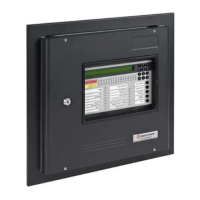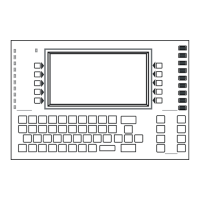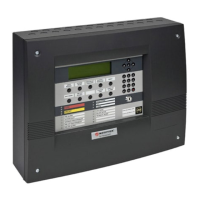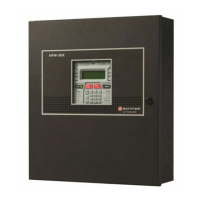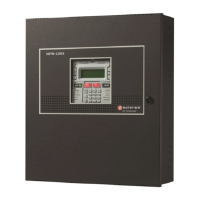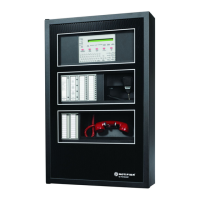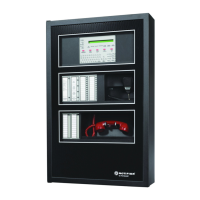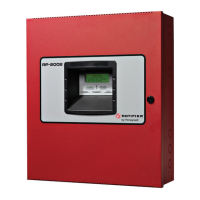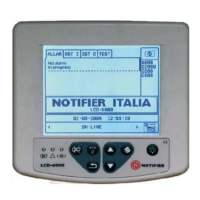56 N16 Instruction Manual P/N LS10239-000NF-E:A 04/20/2021
Section 4: Operations
The following are approved applications for the N16.
The N16, when installed in accordance with the above manuals, comply with the following NFPA 72 standards for fire protective signaling
systems:
• Central station (protected-premises unit, requires CGW-MB)
• Local, remote station (protected-premises unit, requires UL 864 10th edition listed contact closure DACT)
• Proprietary (protected-premises unit)
• Proprietary (receiving unit)
• Emergency communication (requires DVC/DAA/DAA-2)
• Relocation
The N16 is also suitable for use as the following:
• Proprietary burglar alarm unit, (multiplex requires ACM-30)
• Type of signaling service: Non-Coded, March Time, Coded.
• Class A or B power-limited initiating device circuits
• Class A or B power-limited notification appliance circuits
• Power-limited communications loop meeting NFPA 72 Class A, B, and X requirements
• Alarm signal cutoff (if enabled) programmable from 180 – 1200 seconds
• Presignal delay (if enabled) programmable from 60 – 180 seconds
• Signal inhibit (if enabled) programmable from 0 – 300 seconds
• Performance based Technologies (requires CGW-MB)
Types of signals: automatic fire alarm, manual fire alarm, waterflow alarm, sprinkler supervisory service
Type of signaling device: Type NM (non-monitoring) and SM (self-monitoring). Installation limits in all categories of service are under the
jurisdiction of the local authority and in accordance with NFPA70 National Electrical Code. System and peripherals for indoor dry use (with-
out specific marine listings) in a recommended environment with a nominal room temperature of 15°C to 27°C (60°F to 80°F).
Electrical ratings: 2.5A @ 120V or 1.25 A @ 240 V, 50/60 Hz (primary power source), and 24 VDC battery (standby power source). Operat-
ing system software: software version information may be displayed by navigating to the Settings > About menu on the main display.
Local Applications:
• Emergency relocation (paging, live and pre-recorded)
• Emergency communication (telephone)
Protected premises unit:
• Central station
• Remote station
• Proprietary
•Local
Communication transmission path:
• POTS communication off premises using CGW-MB
• Performance-based with CGW-MB
Process control, non-critical
Regional settings
• Chicago
– Panel signal silence button will not function
– Annunciator control modules and SLC modules given a drill or signal silence mode or type code will not allow local drill or signal
silence initiation
– Events must be acknowledged prior to system reset
4.1 Panel Features
NOTE: ONYXWORKS-WS: When operating as a Protected Premises Control Unit, the ONYXWORKS-WS is UL Listed for monitoring and
control of fire alarm notification devices.
•
Custom banner/graphics • Fire Event List
• Basic functions
–Ack
–Silence
– Reset
• History
– Filtering history
– Extracting history
• Date and time • Look-ahead warning
• Display conditioning mode
• Drill
• Alarm verification • Disable/enable
• Pre-signal/alarm delay
• Custom action buttons (license)
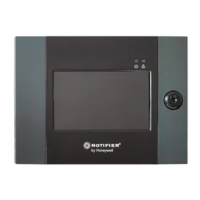
